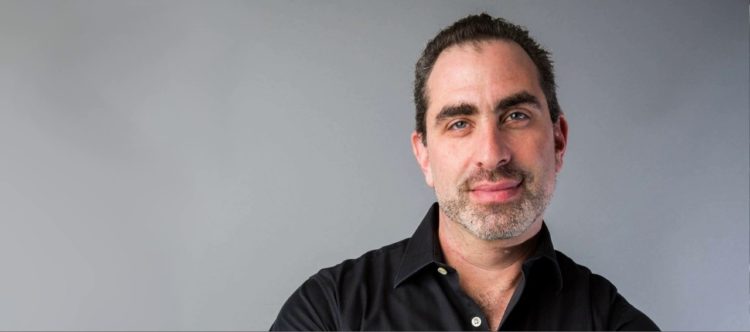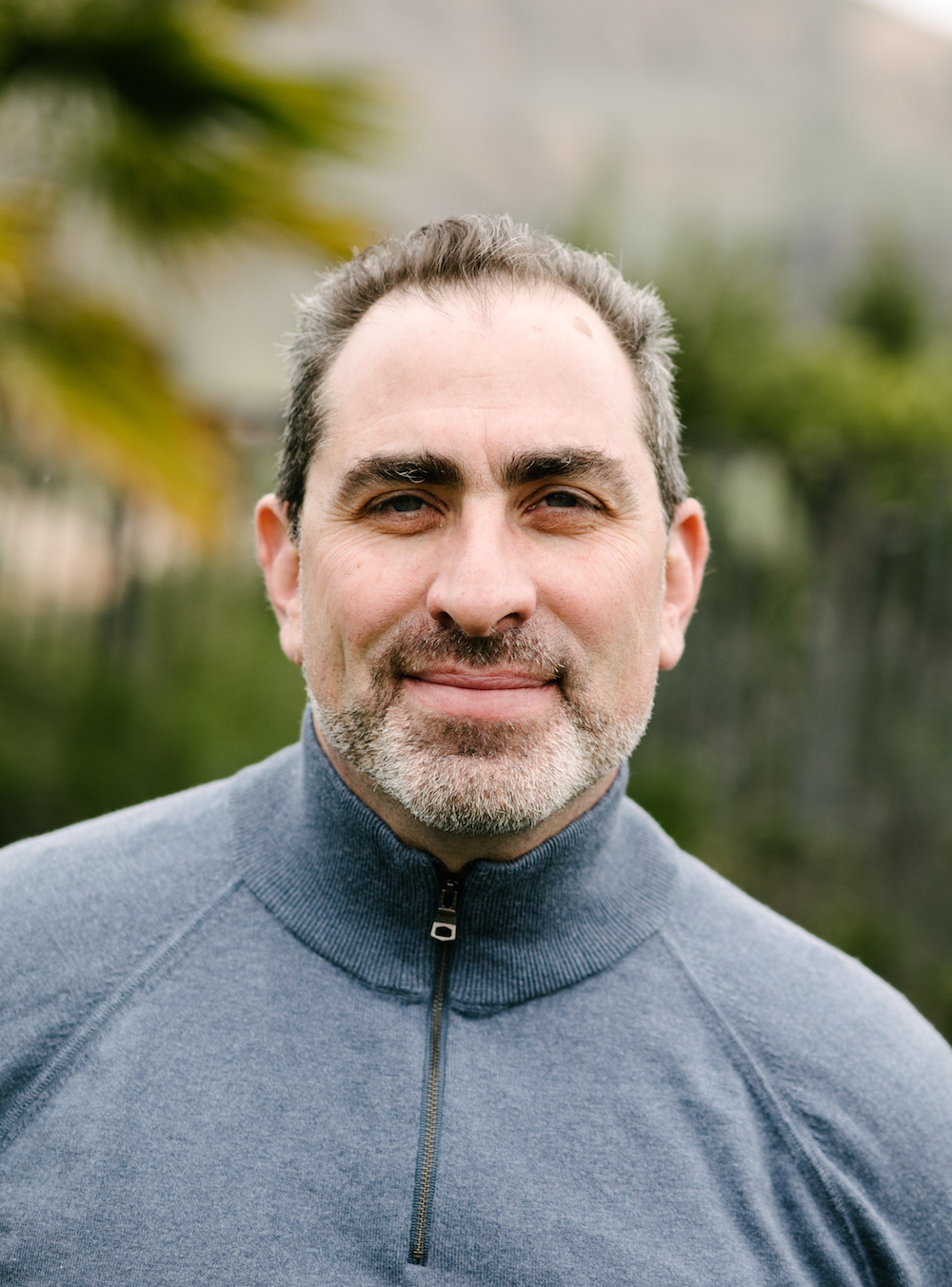The State of Today’s Man with Rob Kandell

There are so many messages of manliness out there in the world these days, all vying for more and more of your attention, but which ones are true? Which messages are good for you, and which are good for everyone?
There’s a big difference there. Some influencers will have men believe that the world is getting softer and that men need to focus more on being manly, growing beards, and getting tough. Some are focused on being the best version of yourself so you can have a more authentic impact on the world around you.
My personal perspective is that the world is becoming more WIIFM every day. WIIFM, if you’re not familiar is “What’s In It For Me” – and it’s killing the vibe in everything. We are demolishing nature so we can be rich. We’re poisoning our bodies so we can be thinner. We’re naming our kids absolutely asinine things because we think it’s cool.
We don’t help our fellow man unless there’s some upside to it for us, but we all get the “feels” when we watch an inspirational clip on Facebook about someone helping out someone else. We don’t treat each other with respect or even courtesy anymore unless there’s something in it for us. So what’s the deal? What’s the state of today’s man?
To answer that question, I’ve had other guests on the show, and I’ve been talking to guys all over the country to discover a little more of their perspective. Today, however, I have a treat.
 In this episode, I’m joined by Rob Kandell, speaker, author, coach, and innovator in communication. Rob has been helping men find themselves for sixteen years. An expert in interpersonal communication and relationships, he has helped thousands of students find a more balanced, energized life with better relationships, more sex (he’s the co-founder of OneTaste, a practice or Orgasmic Meditation), and more happiness.
In this episode, I’m joined by Rob Kandell, speaker, author, coach, and innovator in communication. Rob has been helping men find themselves for sixteen years. An expert in interpersonal communication and relationships, he has helped thousands of students find a more balanced, energized life with better relationships, more sex (he’s the co-founder of OneTaste, a practice or Orgasmic Meditation), and more happiness.
His coaching style is challenging, fraternal, highly rewarding, and definitely not for the faint hearted. He has been described as “part football coach, part loving dad, and part slightly crazed drill sergeant”. He is the host of the highly successful podcast, Tuff Love, and the author of the upcoming book, unHIDDEN, A Book for Men and Those Confused by Them.
We’re talking about the state of today’s man. What does he have going for him? What is he up against? What can he do to improve without being seen as less of a man?
Often, it’s not what you’re doing wrong that counts, it’s what’s you’re doing right. Rob and I dig into what that is and come out on the other side. Take a listen the State of Today’s Man with Rob Kandell, and let me know what you think in the comments below. [Subscribe Here]
SHOW NOTES:
Blake Hammerton: Rob, thank you so much for joining me on the episode today to talk a little bit more about society’s view of man and what we really want to do about it. It’s also to talk about the book you’ve got coming out. I especially love the ending of the title, “and how to understand them more.” I love that part.
So I guess the first thing to discuss here, you know, more than just the intro I said in the beginning, is who are you? What is the value you bring to the table? Why should we know you if we don’t already?
Rob Kandell: Well, I’ve had a very interesting life. I’ve always said I was “normal” until around 28 – living the American Dream, following in my father’s path to a T, Corporate America, house in San Francisco, wife – it looked great, but underneath it, I was unhappy. And, I wasn’t even aware of how unhappy I was. I was dissatisfied with everything. I was gaining weight, working 70 hour weeks, climbing the corporate ladder but not really believing it, and then I had an epiphany.
That epiphany happened at Burning Man in 1998. My wife wanted to go and I told her I didn’t really want to go and be with “those people, the hippy people, the massage people” – the “other” people. I was really a yuppy then.
But I went. And it was there I really sparked and found this whole other side of me that’s really been an epic journey the last twenty years.
BH: No kidding. Is there a certain event that became the impetus of the change for you – was there something that happened at Burning Man, or was it just the general experience of being plugged into people who are more present?
RK: Well, the first part was just getting there. At first I just didn’t want to go. I had seen a picture book – this is 1998 when Burning Man was less popular. It was a mere like 18 thousand people instead of the 70 thousand it is now – but I’d seen a picture book of people walking around naked encrusted in mud, and I was like, “ugh, I don’t want to do that at all. I don’t like being dirty.”
I like being really pristine. But then I got there and got out of the car, felt this breeze wafting over the playa, heard the drums in the distance –a little techno– and this thought came into me like, “you’re home.” And I fought it, but it just came back like, “No, you’re home.”
And this part of me like woke up and I could find a different part of me suddenly. And there are plenty of experiences after that, but that was the first moment of total shock to my yuppy self.
BH: I am one of those people who believes that you sometimes walk into situations that shouldn’t be for you. They’re not supposed to be yours. This is not your experience to enjoy, you’re not for this. And then you walk in and go, “holy crap, this exactly what I didn’t think I needed, but I love every minute of it.” I’m totally for that too.
When I look at the things that you’ve written and the things you talk about in your Tuff Love podcast as well, you talk about intimacy and some of the things we’re changing, and how we’re opening ourselves up to be more connected, better communicating men, I look at the parallels between on your see the world and I see the world.
It feels like we sort of have this separation between how we as humans can create, and connect, and become, and be present, and the media’s messages of what a man should be – you know, “here’s what we should be, here’s a man, here’s why it’s not good enough” – you know, all these things… So what is your take? Who is today’s man to you?
RK: Well, I believe today’s man is in trouble. Bluntly, when it comes down to it. And I think the biggest trouble men face is that they’re not allowed to be in trouble. This viewpoint that being a man, being privileged, being a white man, or a cisgender man, enables you just because you have the privilege, the patriarchy – there’s no room to even discuss the feelings, the angst, and the fears we have, and inadequacies we feel.
That’s the hardest part about being a man right now is not having space. So what we do is we hide. We push it all down. We perfect masks. We create facades hidden behind social media platforms and we put on this show that everything is great, and underneath it, there’s a lot of problems. You know, like me at 28, “everything’s great” but there’s a lot going on below the surface.
Not being able to talk about it, hear about it, talk to other men about it, talk to a therapist about it – it’s just not socially accepted and in that, we’re imprisoned by our own mask.
BH: Yes. And I think the idea that we’re perfecting masks is such a good way to put it. Especially men in business because we’re all used to wearing hats. I have to be the marketer, the manager, the salesperson – you know, all the hats we wear, and we seem to be okay with it.
And recognizing the hat is an easy thing to do because you put it on, you take it off. But when we start to unpack that and realize, “actually these are masks you’re wearing – here’s what you’re hiding behind here, and here’s what you’re hiding behind there,” the Ego jumps in and shut it down.
“Whoa, what are you talking about? It’s not like that. Stop getting weird.” So I get that. I get that we are told to put that away. Push down some truth, push down some exploration, and let’s just not touch that.
RK: And you know, we have phones. We have social media. We have technology so we can live an entire fantasy life from anywhere. You know, when I was young pornography was difficult. I’m 48, to set the time reference. Pornography was a magazine or going into a video shop and renting a VHS to acquire porn.
Now, it is so available and it’s growing. There’s so much. The butterfly effect of pornography is immense.
BH: Exactly, we’re now in an age where you can have access to anything, anywhere in the world, at any point in time at the tip of your finger, and as much as it allows us to be connected to more thing and more knowledgeable about stuff (because we have instant access to it), we are the least connected and least knowledgeable time period of humans we’ve ever been.
RK: I agree.
BH: But as far as today’s man, what does he have going for him? What’s the positive side of what’s he’s got going for him?
RK: The biggest positive he has going for him is the availability of information. You can go on the internet, you can get on Facebook groups, you can find like-minded souls out there relatively easily. There’s Meetup.com where you can find like-minded people and there’s clubs, so really, the best thing going for them is that you don’t have to feel alone at any point in time.
There are options and there are possibilities for connection. Are men using it? Less than I think they should, but there really is an availability. We also live in, surprisingly, the least violent time in our history. There’s a book called Better Angels of Our Nature by Steven Pinker that discusses the decline of violence.
We actually live in –surprisingly because the media makes it seem differently– the safest time in our recorded history. And, we live in a time where women are moving from a subservient position into a powerful position. Where, you know, 30 years ago men were set up to be the caretakers, and now women are coming up and holding the same level of pay, the same amount of power, and there’s been a definitive power shift.
So men can either look at it like, “wow, this is horrible, I feel scared and I’m worried about my manhood,” or feel nervous about it; or there’s actually the possibility of it being, “wow, I can actually have an equal partner in my woman in society” and it’s becoming more and more normal.
BH: Why do we see that as such an issue? Why do you feel like so many men are seeing that as a threat and seeing this as being emasculated, and find themselves fighting against it so ferociously?
RK: One of my teachers gave me a viewpoint that men get their value from production, and women get their value from attractiveness. It’s a bit antiquated, but it does prove and say it well that men really feel good about what they produce if they have a job.
And two things:
1 – There’s a book called The End of Men by Hanna Rosin that describes the epic change that’s happening, where men are losing the job to women. After 2008, a significant amount mostly men-based industries got squashed (production, manual labor, etc.), and so then there’s the outbreak of men without jobs and women with jobs. Suddenly there’s a shift in the dynamic in Western Society.
There’s just this epic change for men happening. Men without production have to look elsewhere for their value, and they’re simply not trained to do that. They’re not trained to look inside.
2 – As another example, I coach a couple and the man is from Colombia (legalized), but he can’t find a job. So instead of staying here –and the woman makes a significant amount of money– and taking care of their son, he’s going back to Colombia because he can get a job. Even though the job is a small percentage of how much value he provides to his wife.
So today’s man needs to find value, needs to feel useful, and it’s more challenging to do that today.
BH: Oh yeah, I can totally understand that. And, you know, coming from the entrepreneurial side, there’s that part of me that wants to tell him, “no, no don’t go back to another job in another place, you can make a job here. You can come up with other ways!”
I want to see people’s passions turn into production. I think that’s really indicative of how well that fits into the story. Men are looking for success and provide value by being productive. It’s one of the love languages as well, you know?
She’ll ask him to tell her he loves her more often and he’ll be stunned at how she can’t recognize all he does for her. All his production to provide value. He needs her to see that he does things and is productive because that’s how he shows and feels love. But that’s not really how it works sometimes.
RK: No. Right. Well, women are demanding more and more from men because they have the option to. I’m really into statistics and numbers so here’s an interesting one: In the 1980s a woman’s pay was $.64 to a man’s $1. And today, Millennial women, younger women entering the workforce are making $.93 for every man’s dollar.
So whereas in the past and previous generations women needed men for financial security, to get a house, or to get a car loan – that has radically changed. Now women are looking at men and asking themselves, “do I really want to take on this relationship? I don’t need to for financial security.” They have a choice now.
The affect now is that people are getting married later, having children later, and a lot of women are looking at marriage as taking on a burden they don’t want to. And so the whole face of marriage is shifting.
BH: Yes, and I feel like the idea they don’t need a man anymore, different schools of thought start coming to mind. We have some men saying that because women don’t need men, they’re all feminists and man-haters. And that’s now how it works at all.
I think there’s also this other really beautiful place to play where we talk about, “how do we create a relationship we both want? You know, because I don’t need you to support me, rather, I want you to be here. It can come from both sides and we can starting building something that’s amazing. And the idea that we’re all doing things later is true as well. I look around at all my friends and we’re in out mid-30s and just now getting married and having babies.
RK: Right. That’s right about the average. And underneath it is a call to men to step up. This is where I’m a little hard on men on my show and in my coaching. Because women have really done the work to advance themselves. And they’ve had a lot of help, and there’s issues with that in terms of programs for girls and things like that, but women have really stepped up and empowered themselves, and it’s created this epic change of women in power.
Men, in my opinion, haven’t fully stepped up to meet women in this change. Instead, they’re kind of quitting. They’re kind of whiney. They’re sort of like, “Screw it, I’m going to go get off on porn; I’m going to go play video games; I’m just going to buy a sex doll, and it’s just good enough.”
So instead of the challenge of the new mountain to climb: to love and embrace a powerful modern women, guys –and this isn’t all guys, but guys are a generation– are kinda quitting. My call to men is, “No, don’t quit! This could be the most fun ever! You could have the best sex, equality, equanimity, and you can have it all, but you gotta step up. You have to work on your emotional side, and your emotional intelligence.
It’s a call to adventure. To use the Joseph Campbell term, this is a call for adventure for a man to step up and be the most powerful version of themselves. And then women are like, “yes! I have a guy to play with who matches me.”
BH: Right. And we look around and see men that aren’t so much lazy, I mean, the’ll put in the work if they find value in it, but it’s gotta be just the right amount of work. You know, just the right amount of playing hard to get and we’re interested, but if this is a mountain and not an actual mole hill, it’s “oh I don’t have time for this.”
So they quit. And, I think the reason we don’t understand that this isn’t a mountain that’s an adversary, but a mountain that’s an adventure is that’s we’ve never been shown there’s actual value in climbing it. We just see it as too much and that she’s crazy, and we don’t know what to do with ourselves, we can’t be emasculated, and we believe we can’t be the man of the house so we tell ourselves all these stories and decide there’s nothing in it for me right now, so I just don’t want it.
RK: Right. And this is not to blame men. This is the culture that we live in. This is what we were taught to do. It really does take agency, it does take desire, it does take commitment to say “I want to break out of the glass ceiling of my emotional availability, my power, and my attention. I want to not take the shortcut of Tinder dating, you know. I don’t want to be swiping left and right. I want to improve myself and my communication.”
That takes a lot – that’s the hero’s journey. That’s the choice that I think is so courageous for men to do because it really does break out of the cultural norm that we were raised in.
BH: You look around social media now, there’s all these different messages going around about what men shoudl be doing these days. You know, we have Axe-throwing outfits setting up next to your neighborhood Walmart. I guess my question is, where is the space where men can do these things (axe-throwing, beer drinking, manliness-cultivating activities) and still become emotionally intelligent, and tackle the issues, and shortcomings, and emotional stuff without being called a pussy for being weak or soft or emotional?
RK: Those axe-throwing outfits are a really popular franchise! I was just reading about them in Inc. Magazine. More to my point earlier, there is a lot of information and opportunity out there. You can just go to Facebook and search for a topic and lurk. There’s so much availability to grow and learn and connect.
There aren’t very many great books for men out there, but there are definitely some. I’m working on my own book to help change the marketplace too. There are definitely book on relating to women and other men. Authors like David Deida and The Way of the Superior Man are out there trying to help guys navigate some of this.
There’s YouTube! You can type almost anything into YouTube and find what you’re looking for. There’s video and lectures. There’s great podcasts – hundreds of thousands of podcasts like this one where you can just explore all the different parts. I’m an avid reader and I’m always reading and absorbing more and more books and concepts. The point is, if you want it, it is out there. You’re just one click away from Amazon and finding a great book.
There are no excuses anymore if you don’t want to work on it. You can work on it privately, you can look for and join great men’s groups, which I think are a great way to learn. There are great men’s teachers out there forming groups too. I know Trip Lanier has great men’s programs for higher level men too. There are great men’s teachers out there, so there’s no excuse anymore. If you want to find it, you can find it.
BH: Exactly. I think it goes right along with people saying they do not have time. No, you have to make time. You have to make it a priority to learn something, even if it’s only 5 minutes a day. I guess when we look at all the resources, mediums, and avenues we have for getting information, what do we need to learn to discern from the messages we get? You know, with the media and the echo chamber of Facebook, what are some of the messages we need to pick up, and which should we pick up but translate so they make more sense?
RK: I’m really interested in Social Media. I’m interested in CNN, Fox News, MSNBC just because I’m really interested in what’s out there. But it’s also important not to fall for any of it. The media is really biased and is selling you a message. And I’m actually going to take your question a different way – I hope you’re okay with it.
The main thing I want to tell men is that you’re a good man. I used to have this exercise when I taught with OneTaste where I ran a mens program. We’d start off with this exercise and you know, I’d start with a student and I’d say, “John, you’re a good man” and we would reiterate that until his response changed from reluctant acceptance or hasty to a genuine, authentic recognition that he is, in fact, a good man.
So regardless of all the noise of social media, the news, your friends or family – all these messages coming towards you, you have to start with yourself. You have to learn internal self-validation because without that, nothing works.
BH: Right. Yes. You really have to understand where your powerful space comes from. Being able to respond, “Yes, John, I am a good man” is one thing, but really being able to stand in that space and really embody it is what makes the difference. Even standing in a space, being vulnerable, knowing you’re uncertain, knowing you’re about to learn something and that you don’t know everything makes you a good man. When you think you know everything and aren’t willing or ready to open up and learn, well, that’s a terrible space to be.
RK: Totally. And self-esteem is built upon esteemable acts.
“Self-Esteem is built upon esteemable acts. Simply put, things that you do and ways you operate to build your connections and confidence are esteemable acts. Nobody can give it to you – you must take action and build it yourself.” – Rob Kandell
Going to the gym and working with my trainer is a huge esteemable act for me. Operating my business with integrity and authenticity is an esteemable act. Being honest with my wife about what’s going on with me in another one. These are really basic building blocks to tell you how good a man you are, and continue to expand upon.
Because women don’t want to be your mother. Women do not want a second or third or fourth child. And, unfortunately, a lot of men are turning into children for their wives. So do the work to find your own empowerment, your own self-belief system, and don’t look to her to have you feel right. Build it inside you first.
BH: Right on. If we’re looking forward to the next generation, what are some things we need to start teaching our boys?
RK: Well, I have hop for the millennials on one hand, and fear for them on the other. I love working with them though. Those kids and the response from the shooting at Marjory Stoneman High School in Parkland, wow. Those kids knock me out of the park. It brings me to tears how powerful they are.
And on the other side, millennials are really hooked on their screens, and there’s definitive damage going on, I believe. Not with people outside the generation, but with that generation certainly. So the first thing is that your life goes beyond your screen. This really is the first generation –millennials and Gen-Z– where there’s a dependence on screens. I mean, toddlers are hanging out with phones, which is ridiculously dangerous. So the first thing is to get off your screen.
The second thing is to find the balance between IQ and EQ. EQ being Emotional Intelligence. Find the balance between the two. Women have permission to develop their emotions and their communication about those emotions, which is really getting them the jobs later in life. So look at it from that place only if you have to – value both. Value both skills.
The third is to switch to collaboration from isolation. Learn to collaborate with other kids and other people. If that’s a team sport, a school paper, cheer squad – whatever it is, learn to play well with others because collaboration, again, is the basis of most of the work out there. Your ability to play well with others enhances your future and also teaches you those social skills to relate, to listen, to empathize, to hear and listen, and to speak, which will give you the ability to find a better partner down the line.
BH: Oh yeah, the idea that you can play in the sandbox together better from a very early age is huge. Having the ability to make eye contact and get away from your screens is all we’re looking for in politics (well, some of it, but that’s a different episode altogether), in our relationships, everywhere else. We just want to collaborate, create, grow things together – get to know each other.
I feel like I might know this answer already, but let’s explore. What is your big goal in all the things you’re doing and the message you’re trying to spread to the world?
RK: My main goal is to be a speaker. Growing up I discovered Henry Rollins. He was is a band, Black Flag, and I hate the music actually, but he also does spoken word – the most amazing spoken word. He mixes in his stories, politics, his viewpoints, with such a rich passion. He tours and he just lights people up and I was so inspired by that.
My main goal though my business, writing the book, and working with people in a speaking career is all to be in front of people, sharing the richness of my life and my stories (and I have a lot of stories) so they don’t feel alone in their pain. So they know they’re not the only ones who thought that way or think that way.
The worst thing that happens is when someone thinks something about themselves and then gets stuck in what’s called terminal uniqueness. – “I’m the only person with this issue.” So my main goal is to speak as much as possible to audiences to inspire them to get out of their hole, off the couch, off the fence, and make a choice to create motion in their lives to move toward their goals.
BH: Awesome! I love that you and I share similar goals for speaking. I want to show people they can be more, have more, and do more when they get out of the heads and get into action. So I love how your message resonates, and maybe one day we’ll tour on a circuit together.
So Rob, what’s the best way for people to get a hold of you, find out what you’re up to, or maybe see you somewhere?
RK: My website is the first place: RobertKandell.com is the hub for all my resources. You can pre-order the book or (depending on when you’re listening to this episode) buy the book. It comes out December 5th, 2018. I’m doing communication courses in LA and NYC in September and October too. I have my weekly podcast and non-stop writing there too. Everything can be found at RobertKandell.com.
BH: Excellent. I’m sure there are a lot of resources we can find there that will help us. A lot of us guys want to lurk first. Whenever we hear or see something we think is an interesting perspective, we’ll want to spy on what else that person is saying and offers before we admit we’re ready to pay attention.
I’m really glad we had a chance to connect and discuss a little more about what’s going on with today’s man. Do you have any final thoughts for the listeners and readers today?
RK: I often end podcasts with that question in the following way:
You’re doing it right. Most people believe they’re doing it wrong. We live in a society of disapproval where you’re told everything you do is wrong. I come from a place where you’re doing it right and you can do it better. You can’t go from bad to better. You can only go from bad to good and good to better. So start over right now, whatever you’re doing, know that’s you’re doing it good, you’re doing it right, now let’s make it better. And from this perspective, life is just a lot more fun.
– – – – – – –
I could not have said it any better, so there’s nothing more to say. Connect with Rob at his various outlets listed below, and post a comment letting me know what you think of today’s topic on today’s man with Rob Kandell.
And, of course,
Stay brilliant.
Connect with Robert Kandell
- Website: https://www.robertkandell.com
- Facebook: https://www.facebook.com/kandellconsulting & https://www.facebook.com/robert.kandell
- Twitter: https://twitter.com/Robertkandell @Robertkandell
- Instagram: https://www.instagram.com/robert.kandell/ @robert.kandell




